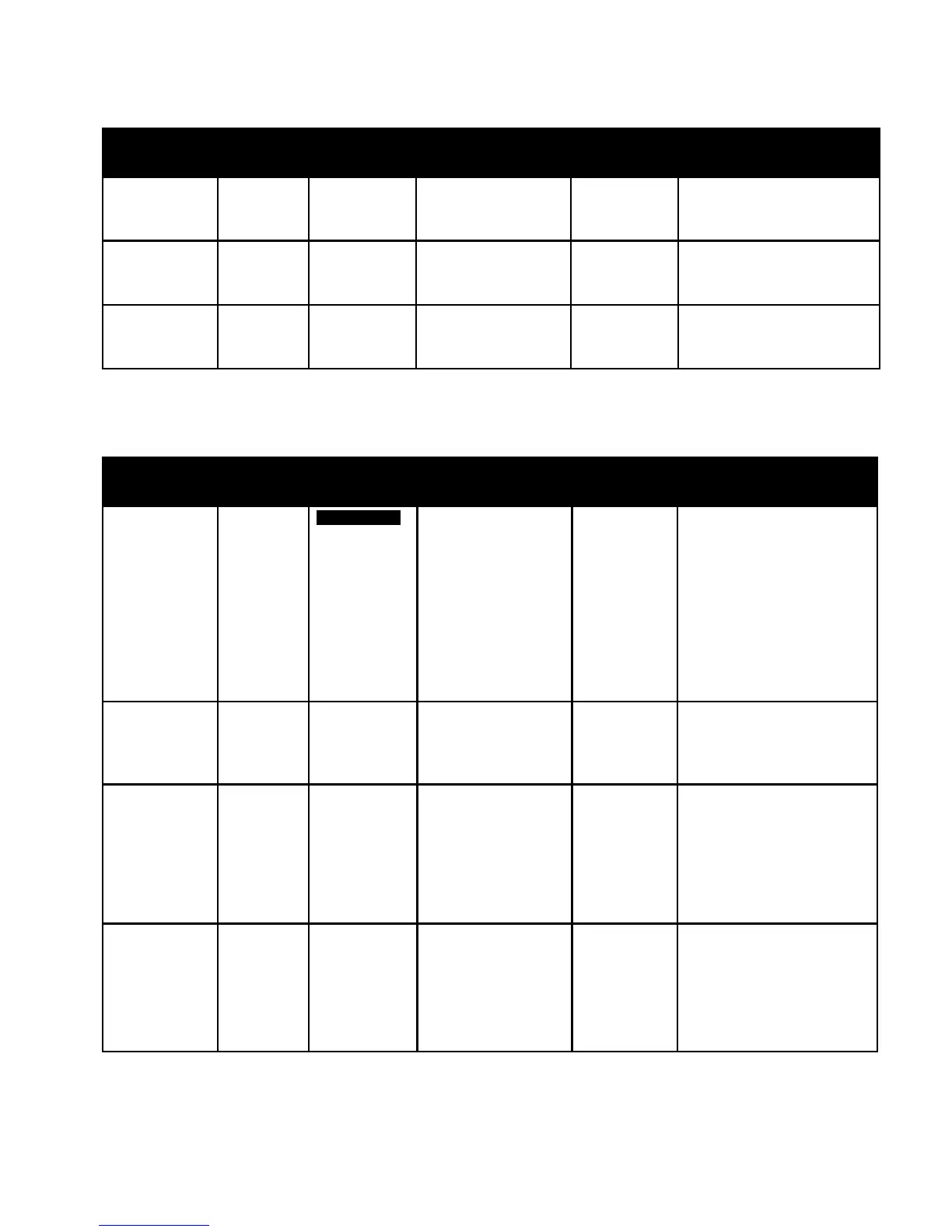Chapter 3 Ventilator Alarms
27
Alarm Priority Audible Visual Indicators Device
Action
User Action
High
Respiratory
Rate
High
◊◊◊ ◊◊
Red ashing button;
High Respiratory Rate
message
Operates Continue using device. If
alarm continues, contact your
home care service provider.
Low Minute
Ventilation
High
◊◊◊ ◊◊
Red ashing
button; Low Minute
Ventilation message
Operates Continue using device. If
alarm continues, contact your
home care service provider.
Low Tidal
Volume
High
◊◊◊ ◊◊
Red ashing button;
Low Vte message
Operates Continue using device. If
alarm continues, contact your
home care service provider.
3.6.2 System Alarms
Alarm Priority Audible Visual Indicators Device
Action
User Action
Ventilator
Inoperative
High Red ashing
button; “Ventilator
Inoperative” message
Shuts down if
can’t provide
therapy safely.
Or, continues
to operate
at a limited
level.
Press Start/Stop button. If
display is operational, Power
O conrmation screen
appears. Select Right button
to shut o device and silence
alarm. Immediately remove
patient from ventilator and
connect them to alternate
source of ventilation. Contact
your home care service
provider for service.
Pressure
Regulation
High
◊◊◊ ◊◊
Red ashing button;
Pressure Regulation
message
Operates Check for blockages or
excessive leaks. If alarm
continues, contact your
home care service provider.
Low Circuit
Leak
High
◊◊◊ ◊◊
Red ashing button;
Low Circuit Leak
message
Operates Check for blockages in
exhalation devices. Make
sure the exhalation device
is clean and functioning
properly. If the alarm
continues, contact your
home care service provider.
High
Temperature
High
◊◊◊ ◊◊
Red ashing button;
High Temperature
Message
Operates Move device to cooler
location. Make sure device
is not close to a heat source.
Make sure cooling vents are
not blocked. If condition
persists, contact your home
care service provider.
